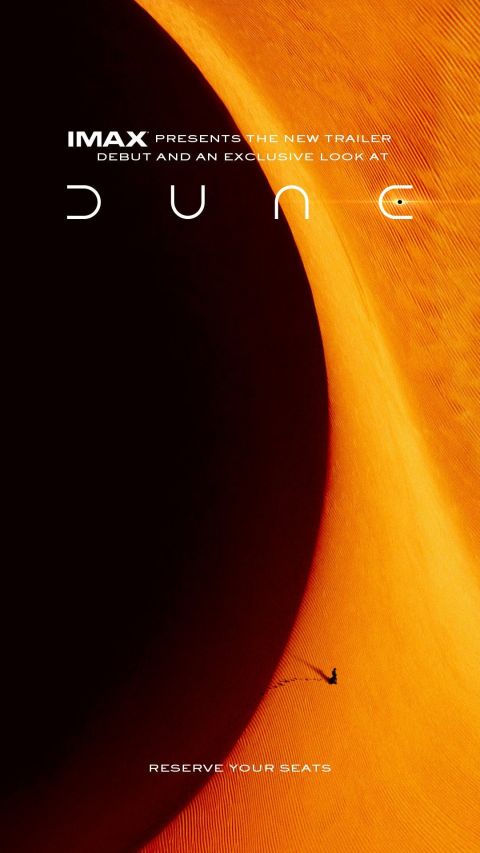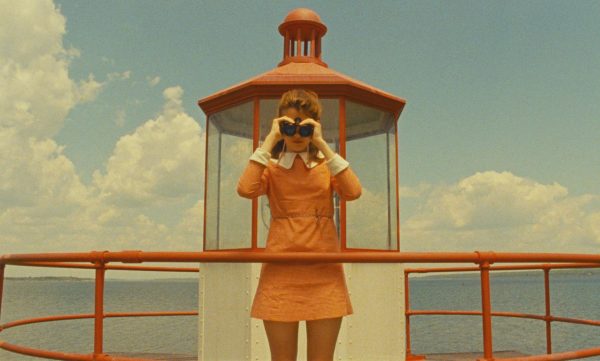Cult classic to blockbuster: “Dune” Review
Dune is as epic and spectacular as movies get, but lacking in most other areas.
“Dune” teaser poster
Frank Herbert’s 1965 novel “Dune” is one of the most popular and influential science fiction stories of all time, so it’s a bit surprising that no successful adaptations of it were made for 45 years. David Lynch’s 1984 adaptation is generally considered to be an unsatisfying, simple translation of the book by fans, and incomprehensible to those who don’t already know the story. If anyone is a fan of the obscure 2000 miniseries directed by John Harrison, they don’t seem to ever talk about it.
But now, in 2021, writer-director Denis Villenevue (along with writers Jon Spaihts and Eric Roth) have tackled a book many consider un-filmable, focusing entirely on the first half of the story (despite the somewhat misleading advertising, the onscreen title is “Dune: Part One”), with a sequel coming out in two years. The film, set ten thousand years in the future, focuses on the attempts of Paul Atreides and his family to maintain control of the desert planet Arrakis by establishing alliances with the native Fremen while fighting off their sword enemy, House Harkonnen. Despite the potential dangers of COVID-19 in crowded spaces, in a September 3 press conference, Villenevue said, “If the audience feels comfortable, I encourage them to watch it on the big screen. It has been dreamed, designed and shot thinking IMAX.”
Personally, I’m very glad I saw “Dune” in IMAX. I’m not sure I would have liked it otherwise.
Virtually all of “Dune’s” strengths derive from its spectacle, visual and otherwise. The sound mix is often deafening in the best way possible, and though Hans Zimmer’s score doesn’t do much more than blare and chant, it does so with great vigor and grandeur. The visuals are even better—they’re breathtaking, awe-inspiring, overwhelming, almost exhausting to watch. In many shots, the characters look like ants in comparison (this is a compliment). The action scenes are incredibly gripping—during an early rescue from a giant sand worm, I thought it couldn’t be topped for its thrills and excitement…and then, later on, it did, during an amazing mid-film battle sequence! Since “Dune” doesn’t have the luxury of explaining all the details of the book’s meticulous world building in one movie, it just throws them in our faces in extraordinarily epic fashion, perfectly orchestrated by Villeneuve.
On the other hand, I can’t say I liked what “Dune” does with its story and characters. The book’s story has two main strengths—complex political intrigue and emotional intimacy between the characters. Since the movie entirely omits the former to speed up the pacing (and gets rid of a lot of the latter), it really needs what there is to work for a fully satisfying adaptation. With Rebecca Ferguson as the only actor who seems to be even trying to show more than one emotion per scene, or to exude any charisma, that’s not the case at all. Timothée Chalamet is especially bad as Paul—almost laughable during his biggest emotional scenes. All that’s left is a story that goes to the exact places you’d expect.
So “Dune” neither tells a satisfying story, nor populates it with especially interesting or likable characters. There are no moments that feel as piercingly true to real life as the novel’s line “There is probably no more terrible instant of enlightenment than the one in which you discover your father is a man – with human flesh.” Still, the film succeeds in communicating the sheer scale of the endless sand dunes, majestic spaceships, and gigantic worms of Arrakis’ setting as much as any movie could. At its best, “Dune” is riveting to watch, and even if I don’t think I’ll rewatch it at home, I’m happy I saw it on the biggest screen. Now that theaters have been showing it for a while, it might be easier to go to a less packed (and safer) screening.













